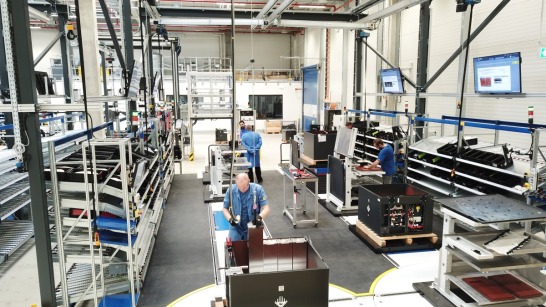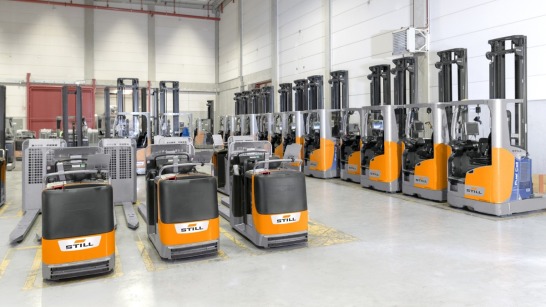Meanwhile over in Germany…
German brewery, Veltins, based in Meschede-Grevenstein north of Cologne, has successfully transitioned from lead-acid batteries to lithium-ion technology as well. Plans for switching to this alternative drive system had already been put in place about two years ago, together with the company’s long-term partner, Linde Material Handling. “Back then, we were using three Linde E14 trucks with conventional lead-acid batteries for transport tasks in the bottling process,” explains Benedikt Flügge, head of Logistics. “The trucks worked reliably, but there was quite a lot of effort involved in changing the batteries every day and properly maintaining them.” Lithium-ion technology presented a sensible alternative. To begin the transition, the company took two 1.4-tonne trucks into operation and rigorously tested them over an extended period. Based on the positive results gathered in the bottling process, lithium-ion trucks were also introduced in the processing of empty bottles and in pre-packing. The switch resulted in tangible benefits: thanks to their superior availability, two li-ion Linde Roadster trucks now perform the work which used to be done by three electric trucks using lead-acid batteries.
Solutions for daily use in the toughest conditions
Availability was also improved by setting up charging stations in strategically selected places: one station is located on the way to the breakroom used by staff, making it easy for employees to charge their trucks while having a coffee. “Initially, there was a certain amount of skepticism among our employees,” Flügge recalls. But within a few weeks, they had integrated the new processes into their daily routines. “Topping up the battery charge has become a normal part of our employees’ workflow.”
Conditions at the sorting center, where vast amounts of goods are loaded and unloaded on a 4-shift schedule, take the operational challenges to a whole new level. “Here, the trucks are in use 23 hours a day; this is the real deal!” Flügge points out. No problem for the 3.5-tonne electric forklift truck equipped with lithium-ion battery technology that is being used at the center. Currently, the company is testing whether electric forklifts can also be used to load full bottles onto freight forwarder trucks and unload empty bottles from them. “It seemed like the logical next step for us to also test the new battery technology with the 8-tonne forklifts,” said Flügge. And so far, things are going very well with the E80 li-ion model: “Acceleration, lifting, speed; the truck performs well and offers high availability. It can cope with an 8-hour shift of loading and unloading freight trucks without a problem.”
Thus, the path to a comprehensive transition to lithium-ion technology is clear for both MD S.p.A and Veltins. The KION Group brands stand ready to support customers with high-performance products that lead the way to a promising future.
_13x18_image_546x307.jpg)
_13x18.jpg)

